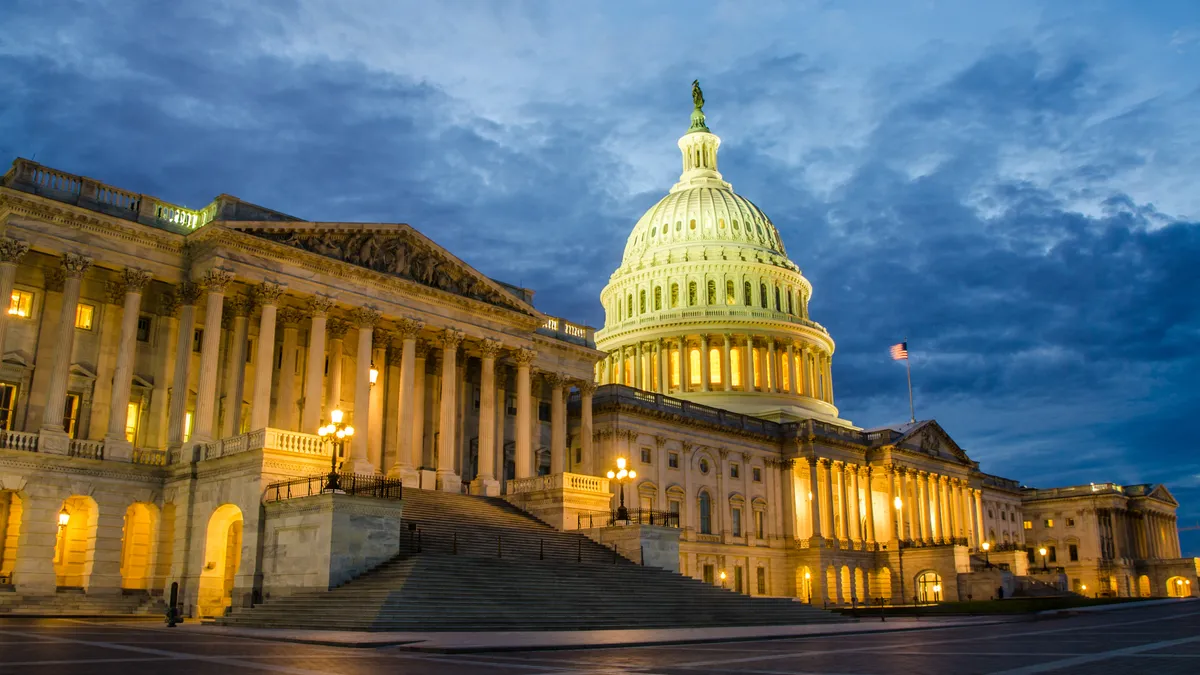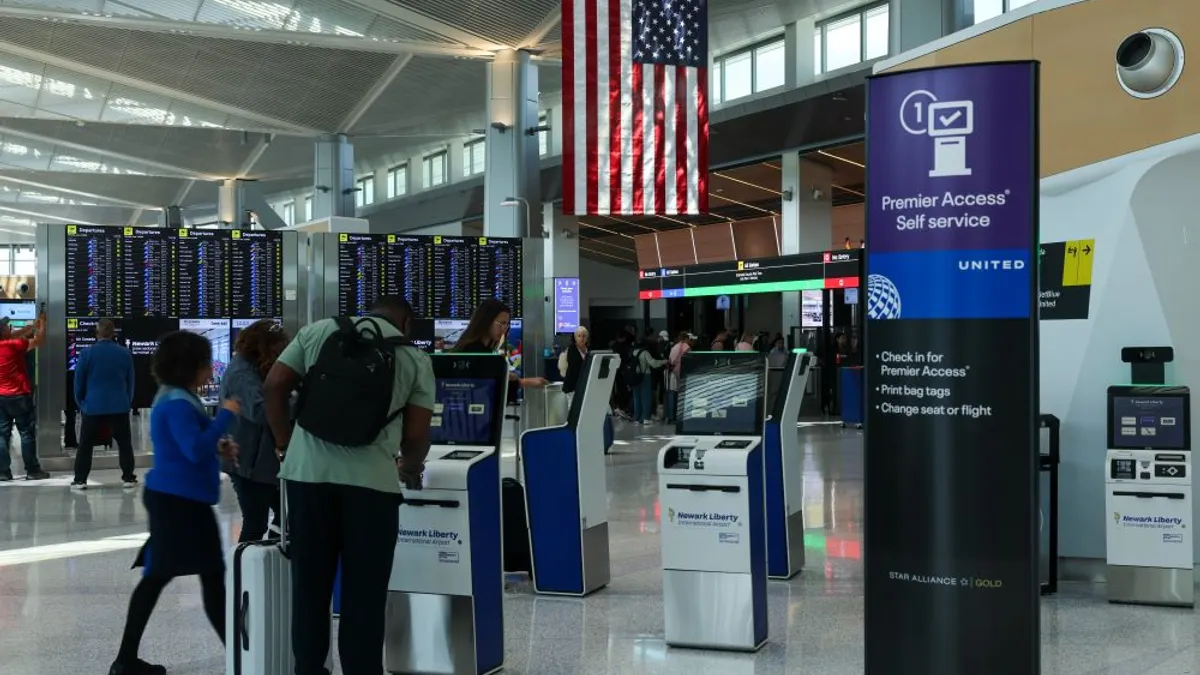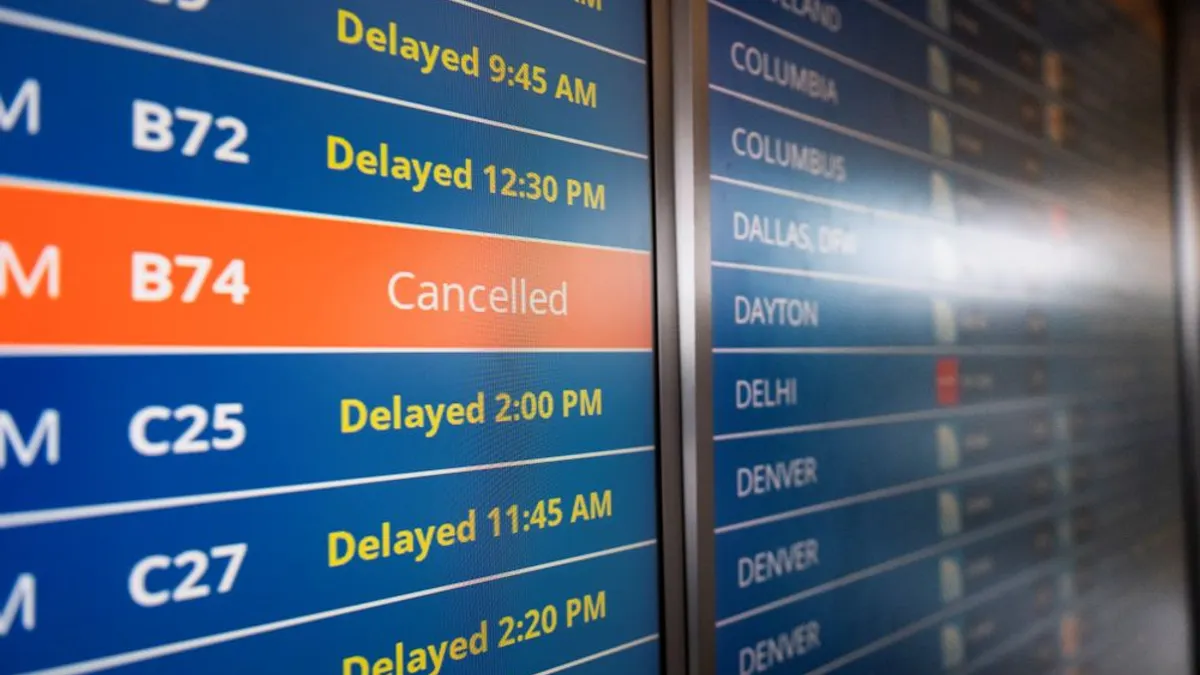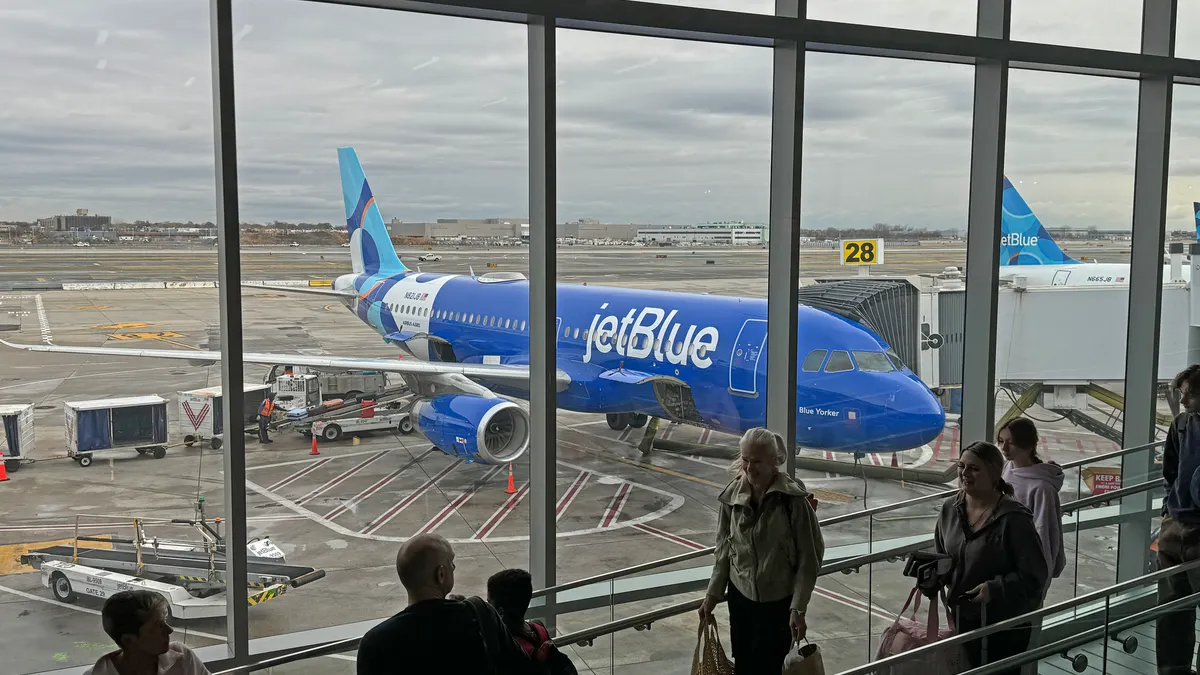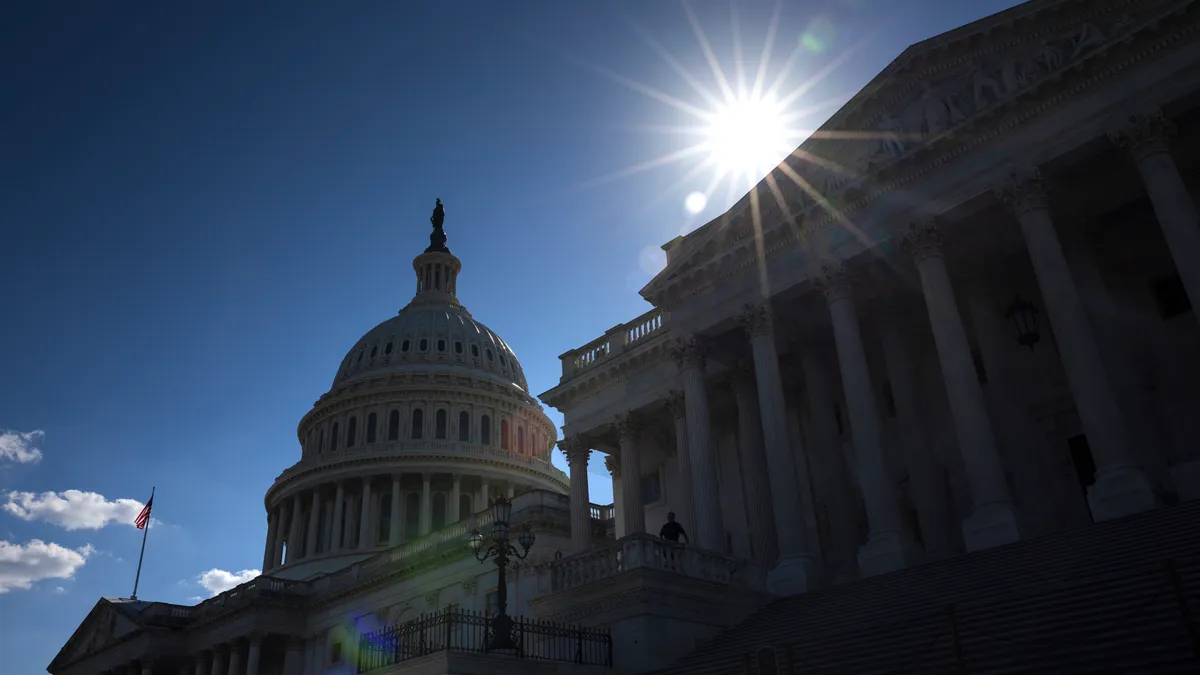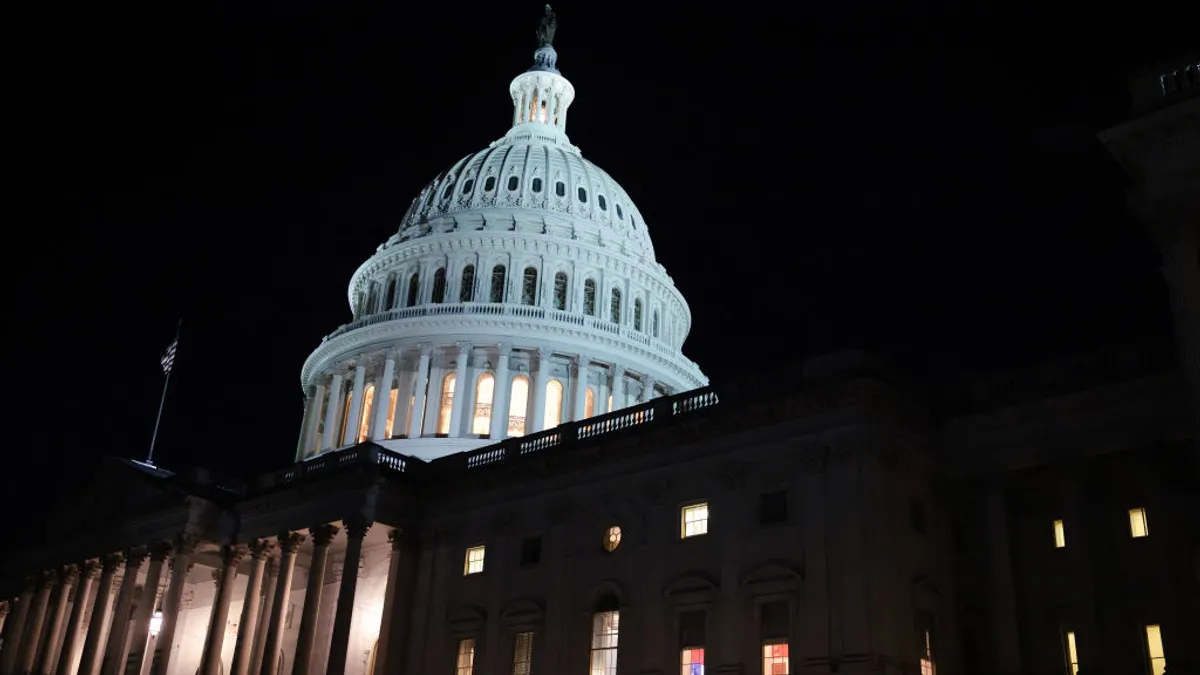Resort fees, amenity fees, destination fees — the additional mandatory costs tacked on to room rates at hotels have different names depending on who’s charging them. Critics, however, only call them one thing: “junk fees.”
In recent months, the fees have become so unpopular that a wave of legislation is threatening to make them a thing of the past entirely.
“Americans are tired of being played for suckers,” said President Joe Biden in his State of the Union speech in February, in which he addressed added fees — at hotels as well at other institutions such as banks, airlines and event venues — directly. A few months later, the Consumer Financial Protection Bureau took aim at eliminating them, starting with a policy aimed largely at fees at financial institutions.
Shortly after the CFPB pushed back against banks, California Governor Gavin Newsom called the fees “bad for consumers and bad for competition” before signing into law the most aggressive anti-junk fee legislation in the country.
Meanwhile, two bills recently introduced in Congress target hotel fees in particular.
Despite this, experts say banning junk fees at hotels might be more complicated than it seems. Hotel Dive spoke to industry leaders about the efforts to eliminate hidden fees, the difficulty of defining what constitutes a “junk fee” and how hotels may fight legislation.
Targeting mandatory hotel fees
The first-known “resort fees” began being charged in the late ‘90s, according to a 2014 report from the Associated Press. Fees began mostly at high-end resorts with extensive amenities, like tennis courts and large pools.
But news reports indicate that the practice spread to other types of lodging, and became more common, in the 2010s. A 2018 Chicago Tribune story notes that in the first half of 2017, the number of U.S. hotels charging resort fees grew by 14% over the previous six months — and by 70% in major metropolitan hubs like New York, San Francisco and Los Angeles.
Philip Ballard, chief communications officer at the group travel booking site HotelPlanner, said fees continued to proliferate amid the COVID-19 pandemic, when properties “were trying to make up for lost revenue.”
I think the ‘junk fee’ moniker has been unfairly leveled at the hotel industry.

Bryan Mohler
partner at law firm Pryor Cashman’s Real Estate, Hotel + Hospitality and Litigation Groups
But now, consumers, regulators and even hotel industry players are increasingly fed up with the practice. As of 2023, resort fees appear to be under attack from all sides.
First, there are initiatives at the state level. According to state officials, California’s recently passed Senate Bill 478 is the nation’s strongest against hidden charges.
A similar bill in Pennsylvania — which recently passed the state’s House and is moving into the state’s Senate — targets junk fees across industries. In an interview with ABC 27 News, State Rep. Nick Pisciottano called it the “price you see is the price you pay act.”
Then there are efforts in the U.S. Senate and House of Representatives: In July, U.S. Senators Amy Klobuchar (D-MN) and Jerry Moran (R-KS) introduced the bipartisan Hotel Fees Transparency Act, and earlier this month, U.S. Representatives Young Kim (R-CA) and Kathy Castor (D-FL) introduced the No Hidden FEES Act.
That’s all alongside the Biden Administration’s efforts, as well as the proliferating number of lawsuits challenging the legality of added fees at specific hotel companies, like Marriott and Hyatt.
Even hotel industry players, such as the American Hotel & Lodging Association, have voiced support for federal-level regulation.
So, does all this spell the end of resort fees?
“The sense I get from having followed this [subject] for the last half a dozen years or so is that the days of it being a messy Wild West are over,” said Bryan Mohler, partner in New York City-based law firm Pryor Cashman’s Real Estate, Hotel + Hospitality and Litigation Groups. “We're going to have some sort of federal regulatory scheme sooner than later.”
Widespread industry support
In recent years, the growing number of regulations — and potential regulations — around junk fees have made it confusing for hoteliers to understand exactly how they can comply.
“We're at a place where we want everybody to be playing with the same set of rules,” Mohler said.
That’s likely a reason behind the American Hotel & Lodging Association’s support of the Hotel Fees Transparency Act and the No Hidden FEES Act, according to Mohler. “They just want it to be fair, and for everybody to be able to compete with each other in the free market.”
As it stands, some hotel companies are showing added fees more transparently than others. In May, Marriott International updated its room rate display to show prices that include room rate and resort or destination fees. The move was in response to a $225,000 fine from Pennsylvania Attorney General Michelle Henry, who found that the company had failed to comply with a 2021 settlement that required it to inform consumers of “hidden” fees.
“I think if I'm Marriott, I'm happy about that [more broad regulation],” Mohler said, “so you're not just targeting me anymore.”
Lauren Wolfe, an attorney at traveler advocacy nonprofit Travelers United, takes a more skeptical view of industry support. Referring to the groundswell of consumer and governmental approval of junk fees legislation, she said, “I think the American Hotel & Lodging Association saw the writing on the wall.”
The fight against ‘junk’
Effectively regulating junk fees, though, could prove complicated. First of all, it begs the question: What is a junk fee? Hotels, of course, don’t label their own fees as “junk.”
Saying that [resort fees] cover amenities is a way for hotels to lie and convince people that they're actually paying for a service, when they're not.

Lauren Wolfe
attorney at traveler advocacy nonprofit Travelers United
“I think the ‘junk fee’ moniker has been unfairly leveled at the hotel industry,” Mohler said. “The FTC defines junk fees as something much more malicious. [...] I think hotel companies have done their best to show that if you're paying me $30 as a resort fee, I'm giving you more than that back in value.”
Wolfe disagrees. “I don't really think that [resort fees] cover anything,” she said. “I think that [hotels] saying that they cover amenities is a way for hotels to lie and convince people that they're actually paying for a service, when they're not.”
Wolfe used the example of properties operating during the pandemic. “Hotels were saying it pays for the pool, it pays for the gym, but then [when] the pool and gym are shut down, you still pay that resort fee.”
Hotel companies could also easily sidestep any legislation that bans fees of a certain name.
“Immediately after the Marriott settlement in Pennsylvania, we saw that a few Marriott properties in the Midwest added a ‘sustainability’ fee,” Wolfe said. “You get rid of the resort fee, and you just pop in a new fee and name it [something else].” (In the wake of reporting on the “sustainability” fee at certain Marriott hotels, a company spokesperson told The Independent, “We have reached out to the franchisee to have the fee removed.”)
But hotels are paying fees as well, as they are more likely to rely on online travel agencies for bookings than ever before to boost occupancy, according to HotelPlanner’s Ballard.
“OTAs have fees as well. That shouldn't surprise anyone,” said Ballard. “I don't think we would call them ‘hidden’ fees. We wouldn't call them ‘resort’ or ‘junk’ fees. It's basically either our markup for doing business with us, or just an operating fee that [...] would enable us to maintain profitability.”
The need to recoup revenue is why Ballard believes, despite the AHLA’s support, any federal-level fee legislation will be fought by hotels. “There's going to be a lot of industry pushback,” he said.
Wolfe agrees. “I'm sure that these hotels will fight to the end; we’ve already seen that they're trying to craft some new fees, and trying to get around this already.”
Skirting the law
If hotels find ways to charge other added fees that are not targeted by anti-junk fees regulation, legislation efforts become a game of Whac-A-Mole.
In Las Vegas, the Los Angeles Times reported that diners at restaurants along the Strip have been surprised and confused by fees tacked on to their dinner bills. Known as a “venue fee” or “concession fee” — and occasionally abbreviated to the vague “CNF” — these fees are increasingly common, Wolfe said.
Unlike tips, which go to the waitstaff, profits from these fees go directly to the owners of the resort the restaurant is in.
Wolfe believes such fees also hurt hotel workers. “We don't have any official data, but we've heard a lot of grumbling from hotel staff that when a hotel implements a resort fee or an amenity fee, the consumers are confused, and then they stop tipping the staff because they think it's a service fee,” she said.
Wolfe noted this is especially a problem at properties that welcome guests from non-U.S. countries, where service fees are often in place of discretionary tipping.
Whether the fees are eliminated, consumer confusion highlights one thing industry players increasingly agree on: that clearly communicating a fee’s amount and purpose can go a long way toward mitigating the frustration they cause.
“Transparency is really the guiding light here,” Mohler said. “I don't think there's anything inherently wrong about charging a resort fee, or whatever you want to call it. You're providing a service for that, and people can either say yes or no, but they can only say yes or no if they know about it.”
Though efforts are being made to require a higher level of transparency, actual enforcement may be a while off.
“I'm glad to see that we finally are getting some movement,” Wolfe said. “But I think moving anything through Congress is hard. It's very, very difficult to move legislation through Congress.”
“That said,” she added, “I think this is a winning bipartisan issue, and you do not see that every day.”



